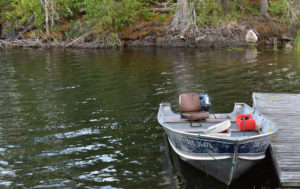 Common Probate Issues in Minnesota
Common Probate Issues in Minnesota
Should you ever find yourself opening a Minnesota probate law case in the land of ten thousand lakes and twenty winters, you may want to note a few particular parts to the process. It may cause some cash to be spent, and how the case is handled could be dictated by the estate’s complexity.
A safeguard might also be implemented to help protect some of the assets for the surviving family. At least a few laws are rather straightforward and should make reasonable sense.
Starting a case might be rather simple as long as everyone’s in agreement regarding who the executor is going to be and which will is valid, and the rest should just fall into place.
Compensation for the Executor
An executor can be compensated for their work on any given Minnesota probate case. Their compensation can come in at least two forms, cash for the work they’ve done and cash for what they’ve spent on the case. While a large portion of the probate case can be about fulfilling the deceased’s last requests, some cost may well be invoked to get everything completed and accomplished. Driving to the estate and moving the assets could both cause the executor to spend some money on gas and/or electricity to keep their car going. Else, perhaps they will have to hail a taxi.
A single probate case, moreover, may not have the power to fully cover the estate. If the deceased owned a house in Minnesota and another home in Wisconsin, for instance, there’ll probably need to be a case opened in both states to account for the two different locations. How each court responds to the matter may vary from state to state. Minnesota laws does suggest that the pay for an executor should be fair. Expenses that were involved for protecting assets should also be brought into the picture, as the executor might have wanted to ensure that something could be kept in the family, and relied on their wallet to protect it.
Complexity Dictates Formality
Whether an estate can be handled in formal or informal probate may be dictated by its overall complexity. This is especially true in matters where a will ins’t involved. It’s best to assume, similarly, that the court will want to proceed with more formal matters in cases where the estate is larger in size. It would be too easy for someone to walk off with something unaccounted for if you’re having to monitor more property. And after all is said and done, who decides if a case can be formally or informally will probably be the court. A suggestion might be able to be made, but the court will final say in the matter.
When there’s a surviving spouse and no will, there probably won’t be much difference to anyone who stands to inherit from the estate. The whole of the estate will probably go to them and the deceased’s children who’re blood related even if they’re not blood related to the surviving spouse. Children who’re not blood related to the deceased may find that they have a less fortunate situation and might not be able to inherit anything. With all that noted, the choice between formal probate or informal probate, therefore, may have little impact in how much the survivors can inherit. Making the choice between those two is more so a matter of how the probate case will be conducted.
Ten Thousand and A Car
In situations where some things are listed in other forms of estate planning, there might be a bit of property which might be able to avoid going through probate. Some items could have been set by the deceased to automatically transfer outside of probate. What wasn’t set to transfer outside of probate might have to fall under a certain dollar amount in order for it to be kept. That stuff will have to be gathered together and possess a total combined total value of ten thousand dollars.
There might be a vehicle that could be thrown in as well. So, as long as the survivors can live with those assets, they should be okay. Keep in mind that it probably won’t account for a home to be included, potentially complicating matters since its value probably won’t fit into that ten thousand.
The allowed amount will probably be calculated from the value of personal items. Think furniture, kitchen appliances, and personal effects. It’s probable that most of these possessions will probably need to be valued, as is with most assets involved with probate. What the court probably wants with that is proof that there wasn’t too much which was able to be inherited by survivors without having to sell off more into those items. They’re probably trying to deal with the deceased’s outstanding debts and bills, and may need to see how much can be paid without greatly harming the remaining family.
Minnesota probate executors and personal representatives
In cases where no executor was named or no will remained, it’s generally accepted that the executor needs to apply for the role. Wills are generally where you will be able to pinpoint a named executor. While the role may be paid, as previously alluded to, it’s oftentimes considered to be rather voluntary. The executor might be the one who’s expected to open the probate case as well, as there’s no reason to have someone serve as an executor if there’s not a probate case in the first place. The person who applies should know full well that it’s their role to help get things started.
The ones to stop someone from becoming the executor will probably be the probate court or the heirs.
Should either of those two parties be comfortable with the possibility, everything might be able to proceed. Cases where an executor isn’t or can’t be involved will probably entail having an administrator, a person brought in by the court to fill the executor’s role. While it’s possible that the family could manage the estate’s distribution all by themselves, they might still need someone to serve as their representative and manager to ensure that all of the conflicts are resolved.
Minnesota Probate Questions
Not everything regarding Minnesota probate cases was covered here. That said, should you ever have some curiosity about what else there might be, feel free to reach out to a MN probate lawyer from Flanders Law Firm LLC.
They might be able to help you remember which state has which laws when you’re handling estates in two different areas. Keep the number of 612-424-0398 on hand if you ever feel like you’d appreciate a refresher course on what to do and how to do it. This could be a very large change in your life and it may mean making big decisions. You can respond by making the right choices.
Contact the law firm today at 612-424-0398.


